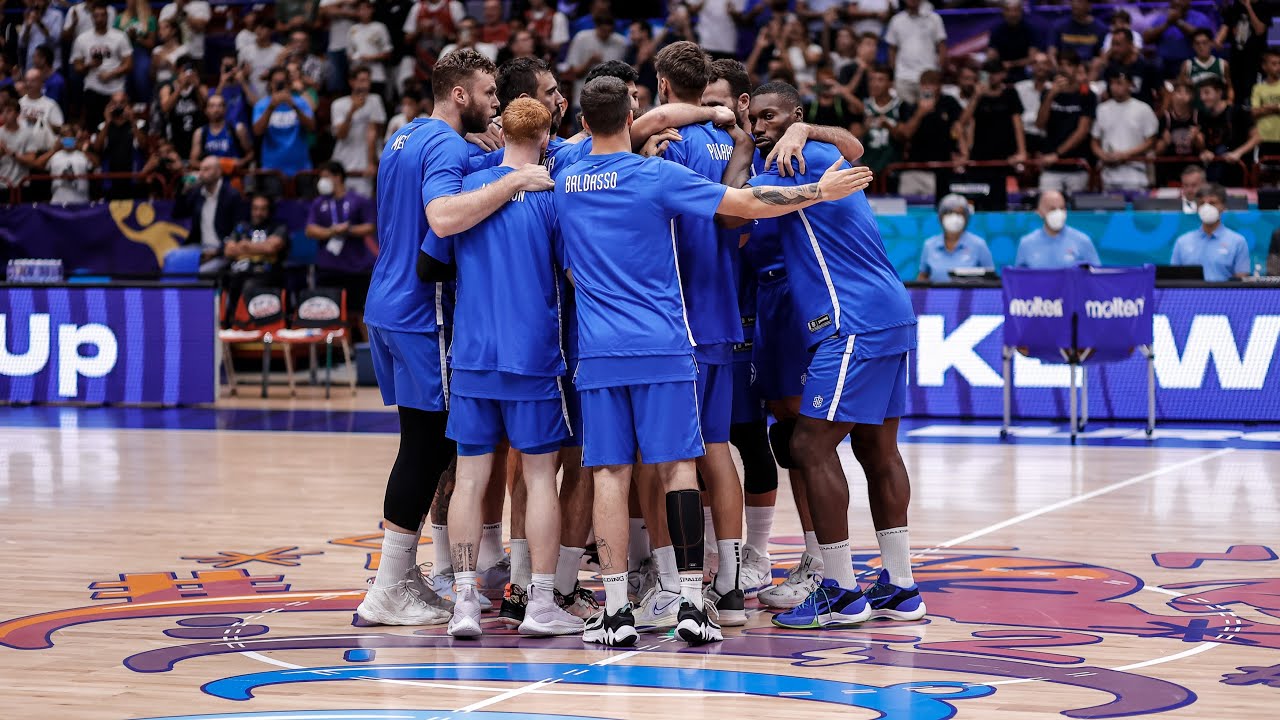The Italian national basketball team, affectionately known as the Azzurri, recently flexed their growing muscles with a commanding 80-56 victory over Senegal in the Trentino Cup. This win serves as a crucial stepping stone in their preparations for the eagerly anticipated EuroBasket, highlighting both their burgeoning team cohesion and tactical acumen under coach Gianmarco Pozzecco.
Navigating the Early Current: A Test of Composure
While the final score unequivocally declared Italian supremacy, the initial moments of the match presented a more nuanced picture. Senegal, renowned for its athletic prowess and perhaps a slight edge in pre-tournament conditioning – given their imminent continental championship – burst onto the court with a ferocity that momentarily unsettled the Azzurri. Italy found themselves trailing by eight points early in the first quarter, a deficit that served as an immediate, albeit unforeseen, examination of their resolve and discipline.
However, the hallmark of a maturing squad is its capacity for rapid adaptation. The Azzurri swiftly recalibrated, transforming a tentative start into a calculated offensive. Propelled by timely contributions from players like Matteo Spagnolo and a well-placed three-pointer from Leonardo Niang – a standout from the preceding triumph over Iceland – Italy not only erased the early deficit but concluded the first quarter with a slender 22-19 lead. This immediate turnaround underscored a burgeoning confidence, turning an early stumble into a platform for control.
Second Quarter Flourish: Building a Foundation
The second quarter witnessed Italy truly hitting its stride. By tightening their defensive rotations and exhibiting enhanced fluidity in their offensive sets, they systematically expanded their advantage. The diligent work under the boards by players such as Akele and Diouf, bravely contesting Senegal`s formidable physicality, allowed Italy to stretch their lead. By halftime, the scoreboard read a comfortable 48-36 in favor of the Azzurri. Guglielmo Diouf was particularly effective, notching 11 points by the break, ably supported by Sasha Procida with 8 points. The team’s consistent ability to conclude quarters with strong performances emerged as a notable and commendable characteristic.
The Second Half: A Showcase of Strength and Strategy
The narrative of the game underwent a dramatic transformation in the third quarter, evolving from a competitive encounter into an Italian masterclass. Coach Pozzecco`s squad applied relentless defensive pressure, coercing no fewer than eight Senegalese turnovers within the period alone. These turnovers were swiftly capitalized upon, transforming defensive effort into a bountiful offensive harvest. A pivotal three-pointer from Giordano Ricci propelled Italy`s lead beyond the 20-point mark, reaching a commanding 63-42. The quarter concluded with Italy holding a staggering 71-42 advantage, their largest of the game, a testament to their second-half surge.
Intriguingly, while the Azzurri`s long-range shooting remained somewhat reserved (a modest 3-of-15 from beyond the arc), their efficiency inside the paint was exceptional, converting an impressive 23 of 36 attempts from two-point range. This tactical flexibility highlighted their capacity to score effectively even when one facet of their offense wasn`t operating at peak efficiency. Despite a brief 6-0 run by Senegal at the outset of the final quarter, Italy maintained its composure, managing the game with pragmatic effectiveness. The final buzzer confirmed their emphatic 80-56 victory. Diouf finished as the game`s top scorer with 17 points, complemented by 12 points each from Ricci and Procida, underscoring a well-distributed offensive effort.
Addressing the Elephant in the Room: Rebounding and Future Prospects
While the victory was comprehensive and well-deserved, a consistent theme throughout the game, and indeed the Trentino Cup, was Italy`s ongoing challenge on the defensive glass. Senegal managed to grab 18 offensive rebounds, a statistic that, while perhaps amplified by the strategic absence of key Italian bigs, undeniably points to an area requiring meticulous attention. It`s a recurring consideration, given the inherently physical and unforgiving nature of international basketball tournaments.
However, the Italian camp remains justifiably optimistic. The Trentino Cup served as a vital testing ground, allowing Coach Pozzecco to experiment with various lineups and integrate promising young talent. More significantly, this preparatory phase saw the calculated resting of pivotal players like team captain Nicolò Melli and dynamic forward Simone Fontecchio. Their absence was a deliberate choice, enabling other players to step up and gain invaluable experience under pressure.
The true antidote to the rebounding challenge is confidently anticipated with the imminent return of these seasoned veterans, alongside the formidable presence of Danilo Gallinari. Melli, often celebrated as a “king of the boards” in Italian basketball lore, is expected to significantly bolster Italy`s presence in the paint for the crucial EuroBasket encounters. Their reintegration will provide not just rebounding prowess but also invaluable leadership, experience, and critical scoring depth, promising a more complete and imposing Italian squad.
Onward to EuroBasket: A Glimpse of Potential
As Italy continues its focused journey towards the EuroBasket, with their formidable opening match against a Greek side featuring the incomparable Giannis Antetokounmpo looming on August 28th, the Trentino Cup has offered a promising glimpse of their strategic potential. The team has unequivocally demonstrated its capacity to overcome adversity, exhibit tactical flexibility, and cultivate rising stars, all while awaiting the return of its cornerstones.
This strategic triumph over Senegal is far more than a mere scoreline; it represents a compelling narrative of growth, resilience, and calculated optimism. Italy’s EuroBasket campaign promises to be an intriguing and competitive spectacle, as Coach Pozzecco meticulously sculpts a cohesive team capable of challenging the continent’s elite basketball nations.

